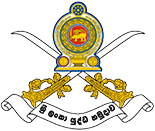PRABAKARAN had everything. Territory. A committed rank and file. Lethal weaponry. International support and friends in the West. SHYAM TEKWANI tracks the alarming rise and astonishing fall of a man caught between escape and death.
Excerpts of an article from Tehelka web publication
MORE VIVIDLY THAN anything that came afterwards in the Sri Lanka war, I remember his first handshake. The hand was soft, the grip delicate and limp. On that occasion in Madras, as he contentedly claimed credit for assassinating the Tamil Mayor of Jaffna and later, the slaughter of 13 Sri Lankan soldiers that ignited the conflict following the anti-Tamil riots of 1983, Velupillai Prabakaran’s dainty handshake seemed in harmony with his soft voice.
A few more meetings and a couple of years later in 1987 — after successfully evading a media ban to reach the frontlines in Jaffna — I found myself reporting in the company of Prabakaran’s ragtag troops in their war against the Indian Peace Keeping Force (IPKF). In the bougainvillea-lined mud tracks, while attempting to photograph his boys gunning down the Indian soldiers in an ambush, I was transfixed by the memory of that handshake as I watched the blood seep from an ill-fated jawan’s head and mingle with the Jaffna dirt.
The other memory is his startled expression when I congratulated him on his newborn towards the end of a long discourse on Eelam. Soon after his fleeting pause, it became clear that he had lost interest in going on and on with his vision of Eelam. He was less voluble, withdrawn and then abruptly left the room. It was left to the master’s voice, Anton Balasingham, to cautiously quiz me on how and what I knew of the addition to his leader’s family.
These two memories define, at any rate for me through all my experiences over the last 25 years in Sri Lanka, the man who has finally destroyed the dream he almost made true. Both the memories give a certain insight into the mind of the man. First, deceive all into believing the contrary about your capabilities — deception is the core of all his strategy. Second, never trust your own shadow — paranoia dictates his behaviour. These traits contributed to the amazing rise — and eventually the astonishing fall — of the leader of the most ruthless terrorist organisation in the world.
To suggest that Prabakaran worked to a master plan in building and shaping his image of invincibility and developing the organisation from a ragtag bunch of boys into the outfit that inspired awe and envy would be to bestow upon him the title of a genius —which he is not. From the beginning, he adopted a twofold strategy — consisting on the one hand of an ‘international political campaign’ by galvanising the diaspora and international opinion in his favour and on the other by bleeding the economy and weakening the state through acts of terror. His success in sustaining the conflict for over a quarter century came from a combination of his own cunning and the lack of purpose, unity and determination in his enemies.

